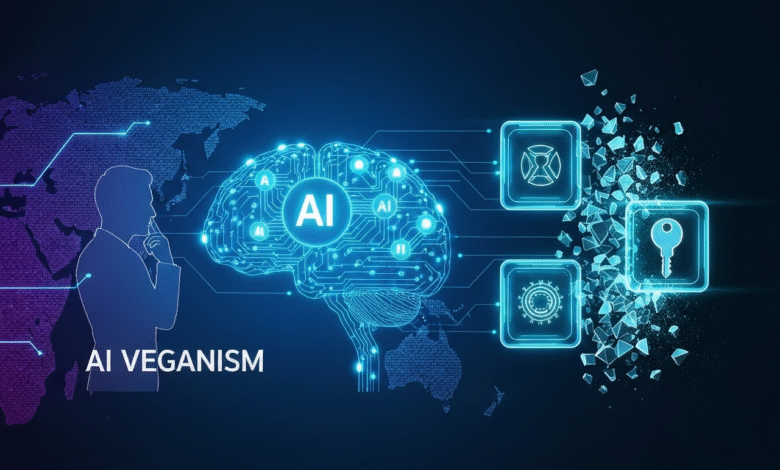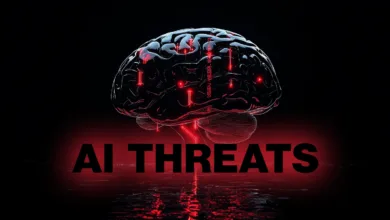BeyondTrust’s 2026 Cybersecurity Forecast: Key Trends Ahead

▼ Summary
– BeyondTrust experts predict agentic AI will become a major attack vector as rushed deployments create new vulnerabilities and drive AI-powered breaches.
– A growing “AI Veganism” movement will see individuals and organizations opting out of AI usage due to privacy, ethics, and environmental concerns.
– Legacy VPNs will be phased out in favor of modern, identity-based remote access solutions as traditional VPNs become security liabilities.
– Cybercriminals will automate “account poisoning” attacks to manipulate trusted financial accounts, making stronger identity validation essential.
– In the longer term, AI will splinter into micro-disciplines with many failing, leading to market consolidation around proven, sustainable AI models.
Navigating the complex future of digital defense requires a proactive approach to identity management and threat intelligence. BeyondTrust, a prominent identity security firm, has released its annual cybersecurity forecast, detailing the pivotal trends expected to reshape organizational security strategies through 2026 and the years that follow. This forward-looking analysis, compiled by the company’s top experts, aims to help businesses prepare for the convergence of identity, artificial intelligence, and geopolitical factors.
According to Morey J. Haber, Chief Security Advisor at BeyondTrust, the cybersecurity field demands a forward-thinking mindset. He emphasizes that anticipating the trajectory of technology, malicious actors, and regulatory changes enables better protection for customers and allows the industry to convert insights into decisive, preventative security measures.
Several key developments are projected to dominate the security landscape in the near term. Agentic AI is poised to become the ultimate attack vector, as its integration into nearly every connected device expands both convenience and the potential attack surface. Hasty deployments with insufficient oversight are likely to introduce fresh vulnerabilities, resulting in a sharp increase in AI-facilitated security breaches.
A cultural shift termed “AI Veganism” is also emerging, with a growing number of individuals and organizations choosing to abstain from artificial intelligence due to privacy, ethical, and environmental considerations. This movement is expected to pressure companies into providing greater transparency and straightforward opt-out mechanisms within AI-powered products and services.
On the geopolitical front, governments are predicted to start imposing digital tariffs, taxing or limiting cross-border digital services. Such measures could spur regional innovation while significantly altering the global movement of data. Concurrently, the traditional Virtual Private Network (VPN) is forecasted to reach its end-of-life, as businesses increasingly adopt modern, identity-centric solutions for remote access, viewing legacy VPNs as security liabilities.
A significant financial threat is also on the horizon. Account poisoning will see cybercriminals automating the process of manipulating trusted financial accounts to insert fraudulent billers and reroute payments. This trend will make robust identity verification and transaction integrity checks essential.
After a period of internal challenges, the MITRE ATT&CK framework is anticipated to evolve or reemerge under a new identity, revitalized to address contemporary risk mitigation needs. Furthermore, the rise of a nomadic workforce presents new security challenges, as employees working from unmanaged locations and devices create complex identity and compliance risks, making comprehensive identity visibility a critical security anchor.
The weaponization of geolocation trackers like AirTags is another concern, with these low-cost devices being increasingly used for reconnaissance and hybrid cyber-physical attacks, which will likely lead to the development of stricter anti-tracking protections. In the consumer space, voice-driven home security is set to take hold, allowing people to configure connected home systems securely using natural speech, ushering in a new era of user-friendly smart home management.
Looking further ahead, the next five years and beyond promise even more transformative shifts. The current AI boom is expected to fracture into numerous micro-disciplines, with many failing to deliver tangible value. Following this, a market consolidation will occur around a smaller set of proven, economically viable AI models.
Biological computing represents a frontier beyond silicon, with systems powered by living neurons on chips potentially surpassing traditional and quantum technologies. This advancement will undoubtedly ignite intense ethical debates concerning computing systems capable of independent thought.
Companion AI is forecasted to become mainstream, evolving from simple digital assistants into emotionally intelligent partners that merge with robotics, offering physical and emotional support and transforming homes, workplaces, and care facilities. Advanced biometrics will also mature, using signals from wearables and continuous authentication to render traditional passwords obsolete, creating a seamless and phishing-resistant identity experience.
Global supply chains will continue to be high-value targets for attackers, prompting the creation of new standards such as AI/ML bills of materials and Cryptographic BOMs to enhance transparency and defend against systemic threats. Finally, the concept of autonomous smart cities will transition from theory to reality, where vehicles, commerce, and public services operate independently, raising profound new cybersecurity and ethical questions.
Haber concludes that the future of cybersecurity extends beyond data protection to anticipating the ongoing collision of digital and physical realities. The organizations that will succeed are those that recognize identity as the fundamental security perimeter and embrace innovation as their most powerful defensive strategy.
(Source: ITWire Australia)





